 Beginning with 2008’s Love Exposure, actress Sakura Ando’s career trajectory has been mightily impressive. She has worked with two of the biggest contemporary Japanese directors, Sion Sono (Why Don’t You Play in Hell?) and Takashi Miike (13 Assassins), and continues to develop as a great leading lady in Japanese cinema.
Beginning with 2008’s Love Exposure, actress Sakura Ando’s career trajectory has been mightily impressive. She has worked with two of the biggest contemporary Japanese directors, Sion Sono (Why Don’t You Play in Hell?) and Takashi Miike (13 Assassins), and continues to develop as a great leading lady in Japanese cinema.
I knew that Miss Ando was going to attend the Edinburgh Film Festival, and was in the process of attempting to get an interview with her when I bumped into her at a Film Festival party. I managed to charm her enough to get an interview the next day before she left the city. Looking very different in appearance from her role in 100 Yen Love (see my review), she had slimmed down, and looked all the better for it. The interview was enlightening and enjoyable, as she considered each question with an air of coolness and relaxed wit.
Note: The interview was entirely conducted with myself speaking English and Miss Ando speaking Japanese.
MARTIN SANDISON: Have you had a chance to walk around Edinburgh? What do you think of the city?
SAKURA ANDO: I really enjoyed the city, I really like Edinburgh. I went to the Botanical Garden, it was the best timing to go. All the nature, the history, it feels like everything is fused in together and it is really comfortable. Not just comfortable really enjoyable and entertaining aswell.
MS: So what do you think of the Edinburgh Film Festival?
SA: I’ve only had a limited time before the screenings, I have only had two days. It’s a shame I haven’t had a chance to look around much. I had heard about Edinburgh Film Festival and its reputation so I was looking forward to it. The point is that the film festival is based in Edinburgh with this background, which makes it a unique Festival. It’s an international film festival but it feels very friendly and homely aswell.
MS: That’s Edinburgh. So to talk about 100 Yen Love, what do you think of your character and her development throughout the film?
SA: The transformation physically, the appearance, that had a lot of affect on the actual character. So that played a large part in creating the character. Because the training was done in a very limited, short time to actually to be able to reflect on yourself and your body it was a very precious experience to have. About my character Ichiko I was drawn to it when I was reading the script particularly how she was fighting, how she was battling. It’s not necessarily the most beautiful thing she gets really gruesome she gets hit a lot she gets knocked down. It doesn’t look attractive. Even when she knows she’s losing she still gets up and keeps fighting, and thats the factor that I was drawn to in the character.
MS: Had you studied boxing before the role?
SA: I actually did about a year of boxing when I was 14. The reason why I did it was because there was a boxing gym in my neighbourhood that was filled with Yakuza-type people (laughs) so I was curious to see what it was like to do it. That was when I enjoyed doing boxing and really liked the sport.
MS: Have you done any Martial Arts training?
SA: I’ve never done sports training besides the boxing when I was 14. No Martial arts, no sports. Before training for the film I started off without having much muscle on me but I think I’m quite agile and have the flexibility to move.
MS: Well you look like a professional!
SA: I was training as if I was actually going to become a professional. I didn’t want the professional trainers to think that I was training just because I was an actress. Just for the act. Then the boxing associates suggested that I take the professional route!
MS: It’s like Robert De Niro in Raging Bull!
(SA Laughs)
SA: At the beginning I felt a strong feeling towards Ichiko before she starts doing boxing that she is unkempt, she’s slacking and she has a very sewage like scent going off her. But I didn’t want people to think Oh! an actress is doing that for the part. I really wanted to get in to the part and not just the surface. I tried really hard to visually and mentally become Ichiko in that unkempt situation where she is dirty.
MS: Possibly your most famous role is in Sion Sono’s Love Exposure. You perform a lot of fight scenes in that film. How would you compare working on those to the boxing scenes in 100 Yen Love?
SA: Comparing the two films, Love Exposure does have a lot of physical fighting but I think it’s more about the mentality. The character herself is a bit mental at the beginning (Laughs). So the body is moving but it’s more on the basis of what the character can do to the other people. How she can manipulate them physchologically. And so it’s more about the character enjoying that mentality. Whereas with 100 Yen Love it’s purely more physical battling. It’s a battle she has with herself both physically and psychologically. It’s a comparison with whom she is fighting.
MS: How would you describe working with Sion Sono? What’s he like as a director?
SA: The film and the director himself, I made this film 8 or 9 years ago so it’s quite a while. It was when I was getting more involved with feature films and I learned a lot about the involvement the energy that goes in to film making. And I learned a lot from doing that. That was because the director was so energetic, charismatic person and trying to keep up with him, the toughness you need to do that, that’s really helped me throughout the career I’ve had after that film. He requires almost the impossible from you and it’s a very hustle bustle environment to work in but everyone’s enjoying it at the same time. The director himself is really enjoying it. It’s a very special experience.
MS: Will you work with Sion Sono again?
SA: Love Exposure was a very condensed, really intense shoot, so me and the other leading actress Shikari Mitsushima haven’t had much chance to work with him after that, but if there is a chance that shows up after this it will be a good opportunity to work with him. But right now he is a very popular director he’s making films constantly throughout the year.
MS: You have worked on both Japanese film and Television, how would you compare working on them?
SA: Yes I’ve tried once starring in a major television series in Japan. The process of creating a television series and a film is completely different, particularly in shooting physically you’re restricted in time, you’ve got regulations of what and cannot do in television, so that’s really different than film. There’s a lot of things I could say if I was being truthful and honest, but now I’m thinking things through! After concentrating completely on the television series I had a time when I got really confused with how I act because it’s so different doing TV and films. Particularly the TV series I was in it wasn’t a typical Japanese drama it was more like I would always have my face or eye looking at the camera at all times so it was very different. It was through experiencing something that I was not used to doing, so all that frustration was reflected in to 100 Yen Love. I’m not really saying that either one is good or bad, they both have their benefits and their good sides. I think it’s because my father is a director and my sister is a director too. I’ve grown up in an environment where film was very close to me so I’m more familiar and closer to the making of feature films compared to how television series are made.
MS: So do you have a favourite Japanese director?
SA: Very difficult question! (Laughs) I do like Kihachi Okamoto.
MS: He is one of my favourites too! I love his films. Do you have a favourite film of his?
(Sakura asks her agent and the translator to find the English title of one of Okamoto’s films)
SA: Both questions what is your favourite film, what’s your favourite director are both very difficult questions to answer. It depends on the day! (Laughs) To be honest even if I have a favourite director I think, Oh I like this director! There are films that I’m not keen on.
MS: Me too. My favourite director is John Woo and I love his earlier films like his Martial art films then his gangster films, but now his films are not so good.
SA: Directors do change over time! (Laughs) I’m not saying which is better or not but it’s kind of nostalgic and nice when you recognise a film and go Oh! This is one of the earlier films that the director made and I really enjoyed it. It’s very interesting.
(Sakura finds out the name of the Okamoto film)
SA: It’s called Oh, My Bomb! There is another one too. I like the other one. It depicts the life of a normal Japanese bussinessman.
MS: I don’t know that one. I’ll have to watch it! What’s your next project?
SA: I’ve had three consecutive films made with me as the protagonist and I’ve put all my heart, spirit and soul into all three, so I’ve been taking a break as an actress this past year. But I’ve been doing a lot of the promotion of the three films going abroad and promoting and trying to send that film so people want to see it. It’s been a very fulfilling, satisfying and good experience being able to be in the same place, where I can send off the things I’ve been creating and experience people seeing it at the same time. So that’s been a very good experience. Come September/October I’ll be starting another shoot, a film based on music, related to music.
MS: That’s great, thanks very much!
SA: Thank you!
To read more of our interviews, please click here.

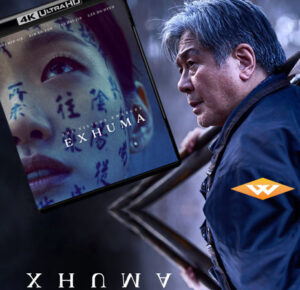
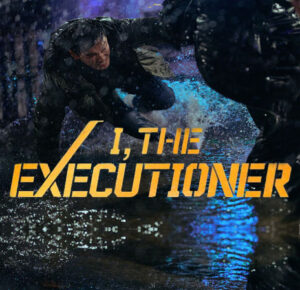
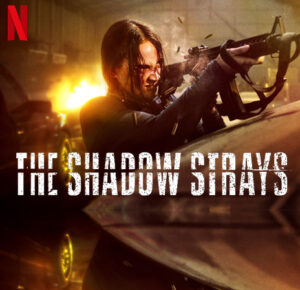
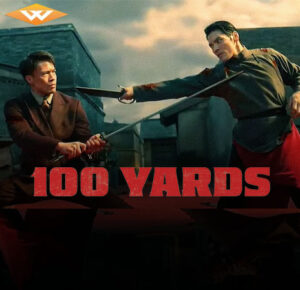

























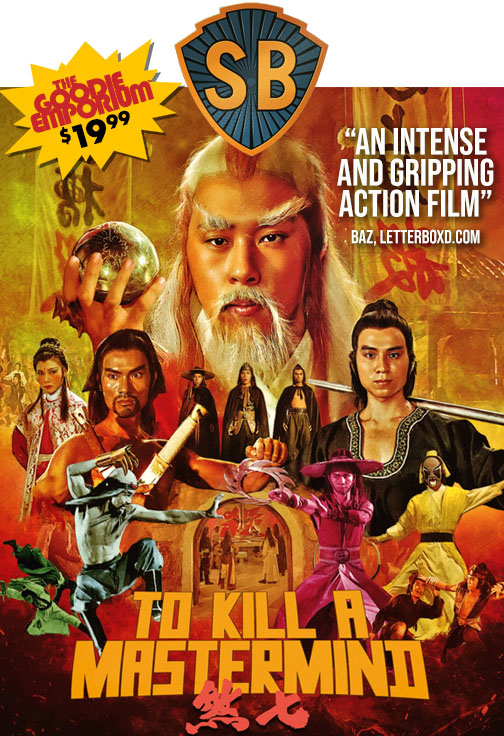



4 Comments